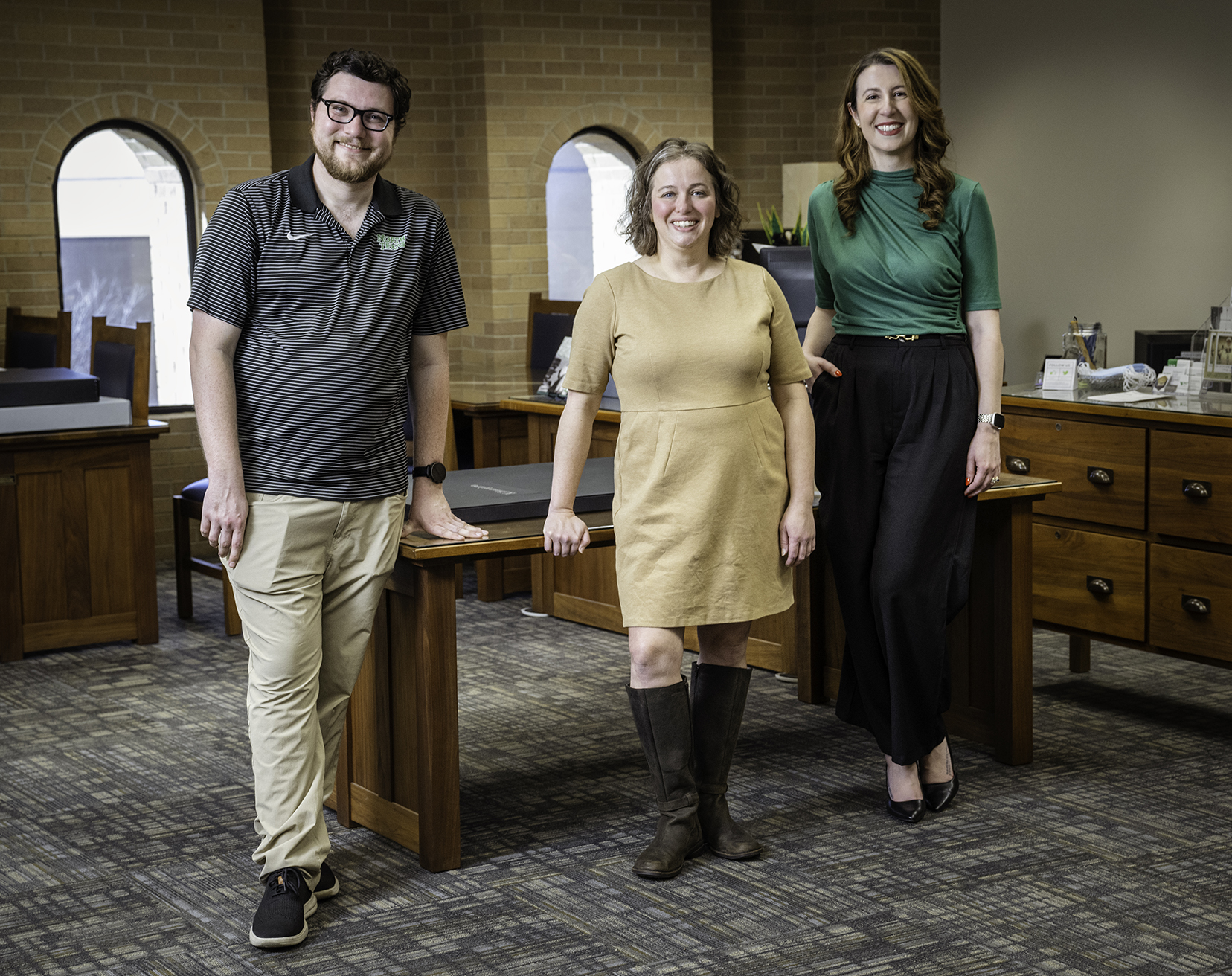
Awardees:
- Brady Lund, principal investigator and assistant professor of information science
- Ana Roeschley, co-PI, assistant professor of information science and director of the archival studies program
- Maurice Wheeler, co-PI and professor of information science
- Morgan Gieringer, co-PI and head of UNT Special Collections
Sponsor: National Endowment for the Humanities
Award Total: $100,000
About the Research: The UNT team’s grant proposal was one of only seven recently selected for funding by the NEH as part of its Research and Development Grant Program and its special initiative, American Tapestry: Weaving Together Past, Present, and Future. As a Hispanic- and Minority-Serving Institution, UNT plays a critical role in safeguarding culturally and historically significant documents related to minority groups in the U.S. Previous research has highlighted a potential deficiency in the support provided to archives and special collections at Minority-Serving Institutions, particularly concerning the digitization of cultural records, which is essential to guarantee the preservation and accessibility of these records. In this research, Lund and his UNT colleagues will comprehensively examine the landscape of MSI archives and special collections, using a combination of qualitative, quantitative and document-based research methods to better understand what resources are available to these departments, what resources they need and the current status of digitization efforts.
Impact Goal: “Currently, little is known about the resources available to MSI institutions to preserve the unique cultural artifacts of the populations that they serve,” Lund says. “Our objective is to use the knowledge we gather in this study to propose the development of a new information system that would provide centralized resources and repositories to MSIs to store and share these unique resources with the broader public.”

